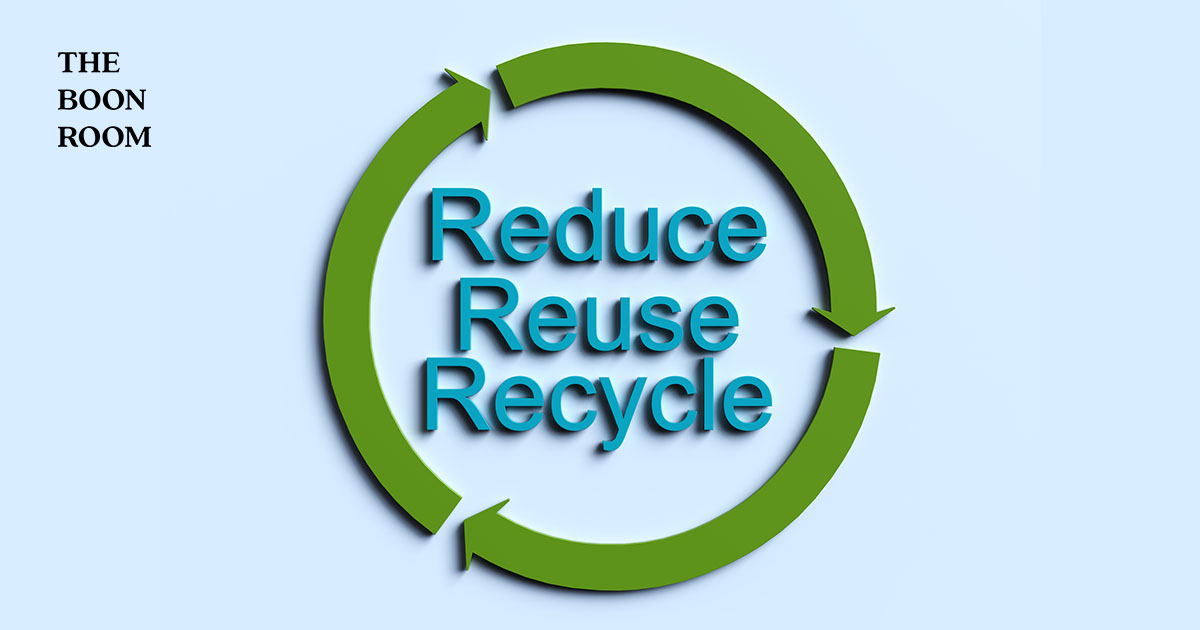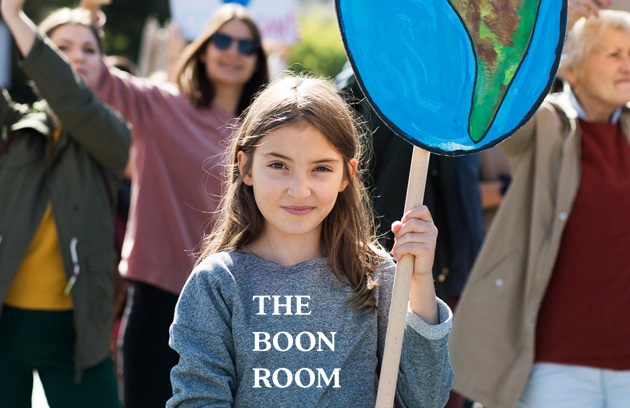You’ve heard of the three Rs before, but are you taking the initiative to exercise them within your own business? Reducing and reusing are self-explanatory, and recycling is a practice more and more individuals are adopting as the global population becomes increasingly aware of its impact on the earth.
Businesses can have an even greater effect than individual consumers if they begin recycling – and it’s beneficial for the business itself. There are, actually, very few disadvantages of recycling in a business, and it’s a relatively easy process to start.
If you are ready to take the next step to owning a greener business, starting the practice of recycling is one of the best ways to make sure you’re watching your business’ carbon footprint while it grows.
How Does Recycling Save Money for Businesses?
In addition to lowering your carbon footprint, there’s a long list of economic benefits of recycling.
Waste Management Costs
All businesses, whether corporate giants or smaller, local businesses, must pay waste management costs in some form. No matter your industry, there’s going to be something making its way to the dumpster during the week.
Removing recyclable products, such as paper, plastic, glass, and aluminum, from your main waste stream will significantly reduce the amount of impact waste removal costs have on your budget.
Going through a central authority to have your recycling service provided can help cut labor costs as well. You can drastically lower your waste management and removal costs by foregoing the need to hire as large a custodial team or by directing the current team to other projects.
If implementing a large-scale recycling program isn’t feasible initially, recycling paper and cardboard alone can create significant savings. Removing paper and cardboard from landfill-destined waste will decrease the overall volume of waste and takes minimal effort on the business end. For businesses in office settings, striving to create a paper-free workplace can cut costs on supply and waste disposal ends, too.
Trade-In Devices
Almost all modern businesses utilize some form of technology, and upgrading employee devices takes a large portion of the appropriated budget.
Rather than getting rid of everything you’re looking to replace, and purchasing new products, you can save significantly by exchanging the old devices for a discount towards new ones. There are an increasing number of retailers that are offering device buy-back services and trade-in programs.
In addition to device buy-back, certain office supply retailers will offer discounts if your business is able to recycle smaller items like ink cartridges or batteries.
If the employees of your business or service utilize technological devices to perform their jobs, try looking into refurbishing old devices to make sure they get more use. Certain parts from older computers can be recycled, and by getting it refurbished, you’ll be saving money on the equipment.
Cheaper Materials
If your business is able to use recycled materials in production, swapping to recycled materials can save you on raw material costs. You’ll be able to increase the profitability of your products overall, and your business will have the potential to create a closed-loop recycling system.
A “closed-loop” recycling system is when a business takes advantage of developing a manufacturing process that utilizes the recycling of post-consumer products as material for the creation of new goods. The more you sell the product, the more you are able to save, because you’ll be leveraging the closed-loop system to save on raw materials.
Having a closed-loop recycling system, created by the production of products that will be eventually recycled and turned into new material, eliminates risks associated with outside sources as well as the need to consistently seek new material suppliers.
Business Grants
Could the best way to save money be to make money? Unlike loans, grants offer money you don’t have to pay back. Agencies like the United States Environmental Protection Agency (EPA) award over $4 billion in funding every year alone. 1
There are hundreds of grants available for your business or service to apply for, once you start increasing your sustainability efforts. The government and other non-profits highly encourage recycling and any other methods that will cut your business or service’s carbon footprint.
Once your business puts an official recycling system in place, you will have the ability to apply for grants. Both environmental nonprofits and government agencies offer grants to businesses who are actively engaging in sustainable practices.
Having an active recycling program in place will open your business up to amazing opportunities. Be sure to track the success of your programs, in order to use the data on any upcoming applications.
Consumers Care About Their Impact

Increased awareness of humanity’s role in climate change has begun to significantly shape changes in the lifestyles of a majority of consumers. The environmental impact each and every one of us creates causes consumers to think twice about their purchases. Globally, nearly 80 percent of consumers desire to live a more sustainable lifestyle, and recycling is one of the best ways to do that. 2
Many consumers highly consider the environmental impact and sustainability efforts that a business has before making their purchase. 3 Frankly, taking care of our planet is a popular trend, and most business owners know keeping up with current trends means increased profits.
Consumers Don’t Mind Paying the Premium
It’s all too common for businesses to argue that going green will cut into their profits, and subsequently, their bottom line. But statistics show that it’s simply not the case. Actually, it’s the exact opposite.
Consumers are willing to pay premium prices for products they know are manufactured sustainably, and come from ethical trade practices. In fact, younger generations, like Millennials and Gen Z, will pay the premium prices twice as often for a product or service that is sustainable as compared with older generations, like Baby Boomers or Gen X.
In the rare event that entering your business in a recycling program adds additional costs instead of improving profit, there’s no need to worry. You can always calculate the cost of entering a recycling program into your product or service, as long as you communicate with consumers that the increase in cost is going to a sustainability initiative.
Because younger generations are more than willing to pay for products or services that are sustainable, it won’t hurt your bottom line. More likely, it will strengthen your public image, attracting more customers.
Public Image Is Everything
Making it public knowledge that your business engages in sustainability efforts, including recycling, can only be beneficial for your businesses image. There’s no downside to being widely known as a green business in the consumer eye.
Your green efforts are something that you should make well known. By stating what exactly you’re doing to minimize your carbon footprint on your website or social media, you can create a beneficial relationship with your consumer base, and make those consumers feel as though you are a reliable source from which to purchase.
Always backup your statements with the truth, however, or your sustainability campaign could backfire. Over inflating or being factitious in either how much or what you are recycling could easily be discovered by your consumer demographic, and your public image will suffer.
Creating a Positive Work Environment
Consumers aren’t the only ones who take your businesses sustainability efforts seriously. Your own employees want to work for a business that implements green practices, and recycling is the best way to start.
Recycling and other sustainability efforts can lead to a positive environment in the workplace. When employees see their employer making an effort to reduce the business’ carbon footprint, and reduce the number of environmental hazards their employer creates, they generally feel more positive about the organization for which they are working. 4 It’s no secret that a positive work environment is better for your business’s bottom line, too.
Increased Innovation
When employees witness these efforts and ideas being implemented, it’s positive reinforcement that new ideas are encouraged, and drives innovation amongst the staff. Creating a work environment that encourages innovation becomes an incubator for the next big idea that will come out of your business. Trying a new strategy, or launching an original product, has the potential to grow your business, and with more growth, comes more profit.
Employee ideas can help with your bottom line, too. In addition to a recycling initiative, if your staff has their own ideas they’d like to try to increase sustainability and decrease the business’ carbon footprint, those efforts could curb costs in certain departments.
Loyalty Is Everything
It’s a simple equation, really. Happy employees are loyal employees, and retaining loyal employees is great for your business’ bottom line.
Having loyal employees means less turnover, which means you won’t have to allocate large portions of budget to hiring efforts and new hire training. It doesn’t matter what industry your business is in, or the size of your operation, losing critical employees can have a big impact on the budget.
It can cost your business anywhere from 50-200% percent of the departing employee’s salary trying to find a replacement. 5 Such a large amount of time, money, and effort can be saved by developing employee loyalty through a positive work environment.
Employees Are Customers, Too

For most businesses and organizations that sell goods or services, employees tend to be customers, too. An employee who works at a retail establishment may shop there, or an employee who works at a restaurant will probably eat there from time to time.
Just like your regular customers, your employees are also concerned about the sustainability of their purchases. Having a recycling program in effect doesn’t just create the foundation for an innovative, positive workspace, it also turns loyal employees into brand-loyal customers.
There are a plethora of ways that starting a recycling program at your business or within your service can help save money. Once you implement a successful, efficient recycling strategy, you’ll be decreasing your waste, earning new loyal customers, and giving your employees the positive reinforcement to continue creating innovative ideas.
References
- US EPA (2022) EPA Grants. US Environmental Protection Agency. Retrieved April 25, 2022, from https://www.epa.gov/grants
- Simon-Kucher & Partners. (2021). Global Sustainability Study 2021. Global Sustainability Study 2021.Retrieved April 25, 2022, from https://www.simon-kucher.com/sites/default/files/studies/Simon-Kucher_Global_Sustainability_Study_2021.pdf
- Borin, N., Lindsey‐Mullikin, J.and Krishnan, R.(2013), “An analysis of consumer reactions to green strategies”, Journal of Product & Brand Management, Vol. 22 No. 2, pp. 118-128. https://doi.org/10.1108/10610421311320997
- Kong, L., Sial, M. S., Ahmad, N., Sehleanu, M., Li, Z., Zia-Ud-Din, M., & Badulescu, D. (2021). CSR as a Potential Motivator to Shape Employees’ View towards Nature for a Sustainable Workplace Environment. Sustainability, 13(3), 1499. MDPI AG. https://doi.org/10.3390/su13031499
- Cloutier, O., Felusiak, L., & Hill, C. (2015). The Importance of Developing Strategies for Employee Retention. The Importance of Developing Strategies for Employee Retention. Retrieved April 25, 2022, from http://www.m.www.na-businesspress.com/JLAE/Pemberton-JonesEJ_Web12_2_.pdf
Jenny Weatherall is the co-owner and CEO of Eminent SEO, a design and marketing agency founded in 2009. She has worked in the industry since 2005, when she fell in love with digital marketing… and her now husband and partner, Chris. Together they have 6 children and 3 granddaughters.
Jenny has a passion for learning and sharing what she learns. She has researched, written and published hundreds of articles on a wide variety of topics, including: SEO, design, marketing, ethics, business management, sustainability, inclusion, behavioral health, wellness and work-life balance.

